Nestlé, Colgate-Palmolive, PepsiCo and Procter & Gamble fail to take action against a company destroying a critical habitat bridge for endangered Sumatran elephants
A controversial palm oil producer exposed recently for illegally slashing and burning forests continues to sell its Conflict Palm Oil to a palm oil mill and processors supplying major brands like Nestlé, Colgate-Palmolive, PepsiCo and Procter & Gamble despite their commitments to end deforestation for palm oil by 2020. Our latest investigations expose these brands’ failure to stop forest fires and deforestation in the Leuser Ecosystem — despite knowing for years that their appetite for palm oil is driving the burning and destruction of forests for new plantations in this critically important tropical rainforest in Indonesia.
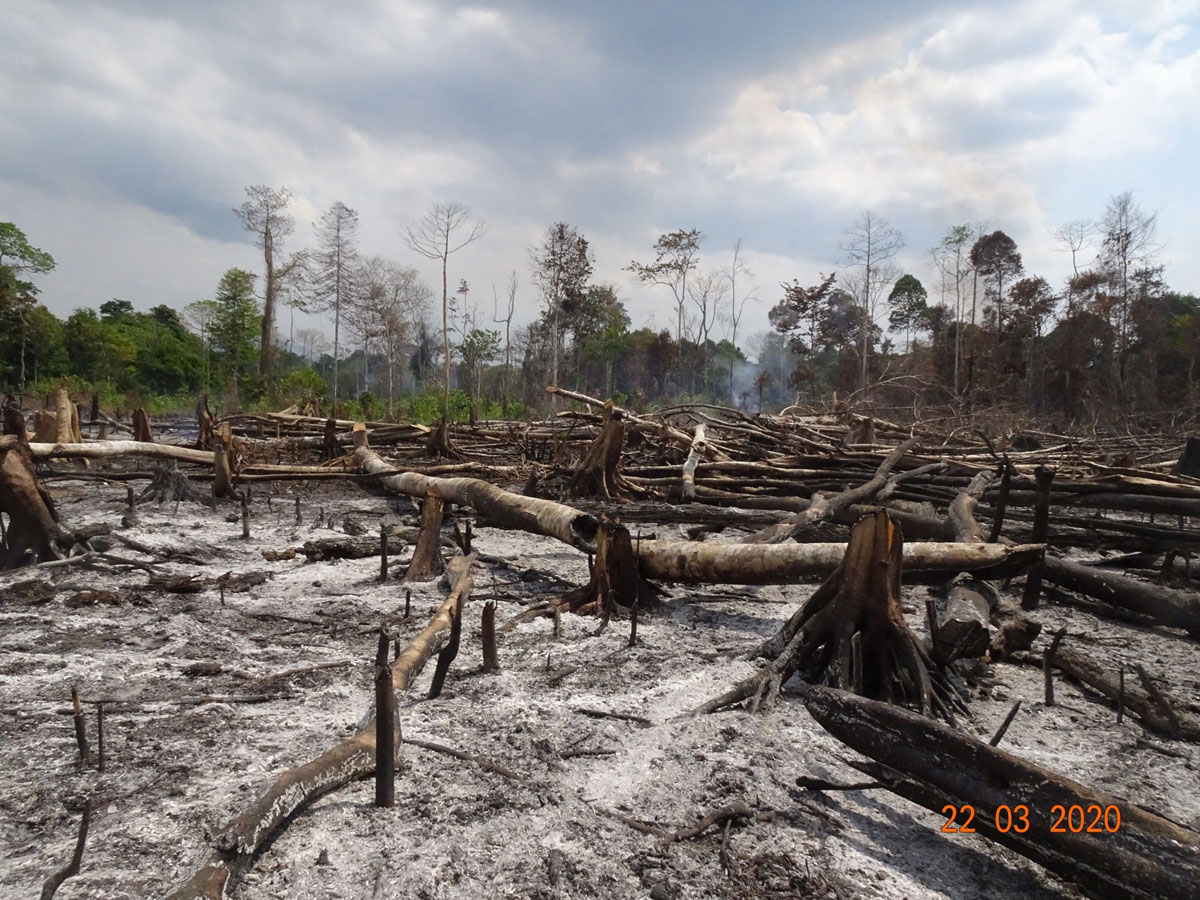
The published mill lists of Nestlé, Colgate-Palmolive, PepsiCo and Procter & Gamble all show that they are sourcing from the mill found to be accepting fruit from PT. Indo Alam, despite the producer’s well-documented track record of forest destruction. Nestlé has published details on its decision to ban two palm oil producers from its supply chain — however PT. Indo Alam is not included in its ‘No Buy’ list despite the producer being repeatedly exposed for slashing and burning forests in the Leuser Ecosystem. Colgate-Palmolive, PepsiCo and Procter & Gamble have all failed to report publicly on actions they are taking to ensure PT. Indo Alam is eliminated from their supply chains.
PT. Indo Alam has cleared at least 244 hectares of critical lowland forests within the protected Leuser Ecosystem since the government of Indonesia announced a moratorium, prohibiting clearing forests for palm oil. As the Covid-19 crisis has worsened, the company has moved in five excavators to clear more lowland rainforests — a move many rogue actors are doing to take advantage of reduced oversight by government and private sector actors. The company has scaled up forest clearing since January and clearing has continued throughout July, when a further 10 hectares of forests were cleared. Over 440 hectares of critically important lowland rainforests remain threatened within its palm oil concession, which covers 1681 hectares.
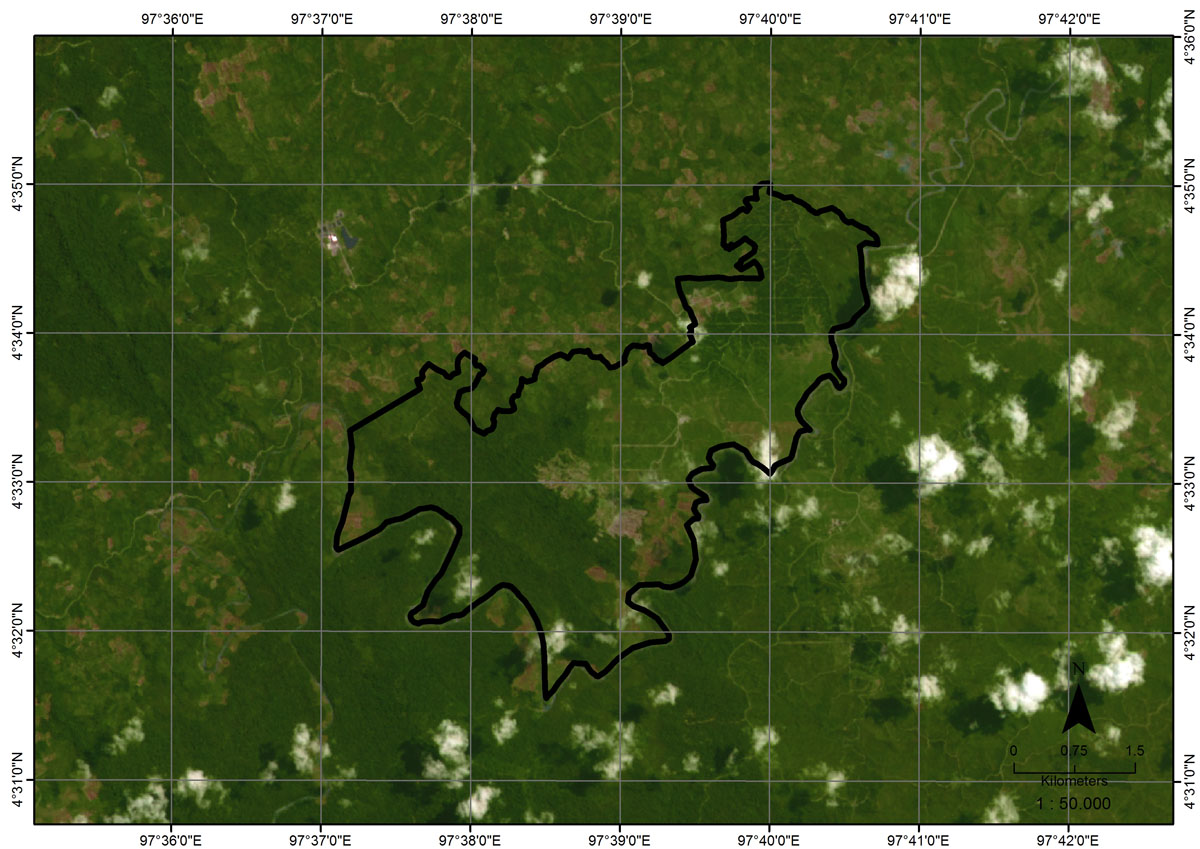
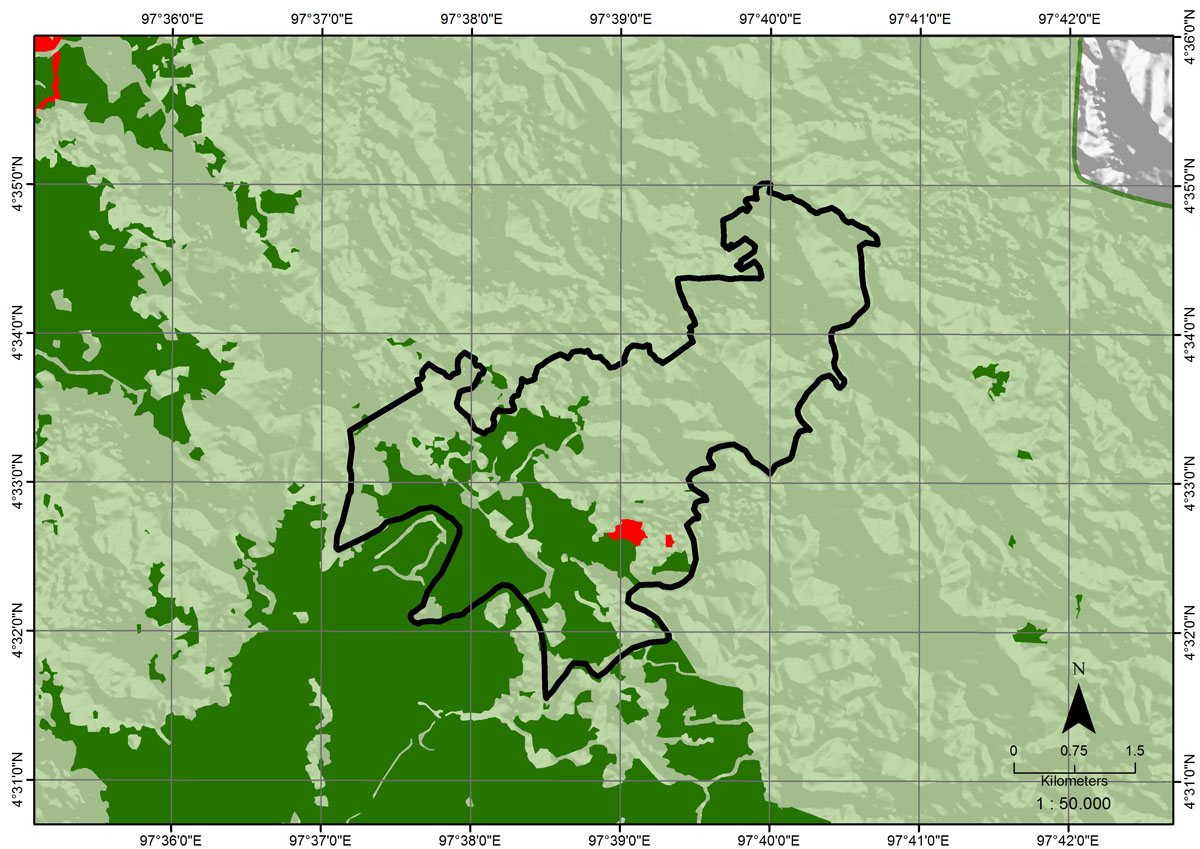
In June 2020, field investigators undercovered evidence showing that PT. Indo Alam continued to sell its oil palm fruit to nearby mills — this time to a mill called PT. Teupin Lada. This mill is a relatively new mill as it has only been operating since 2018. PT. Teupin Lada is owned by Haji Subarni A Gani, a businessman that has previously run for district mayor of the Bireuen regency, a district on Aceh’s north coast.
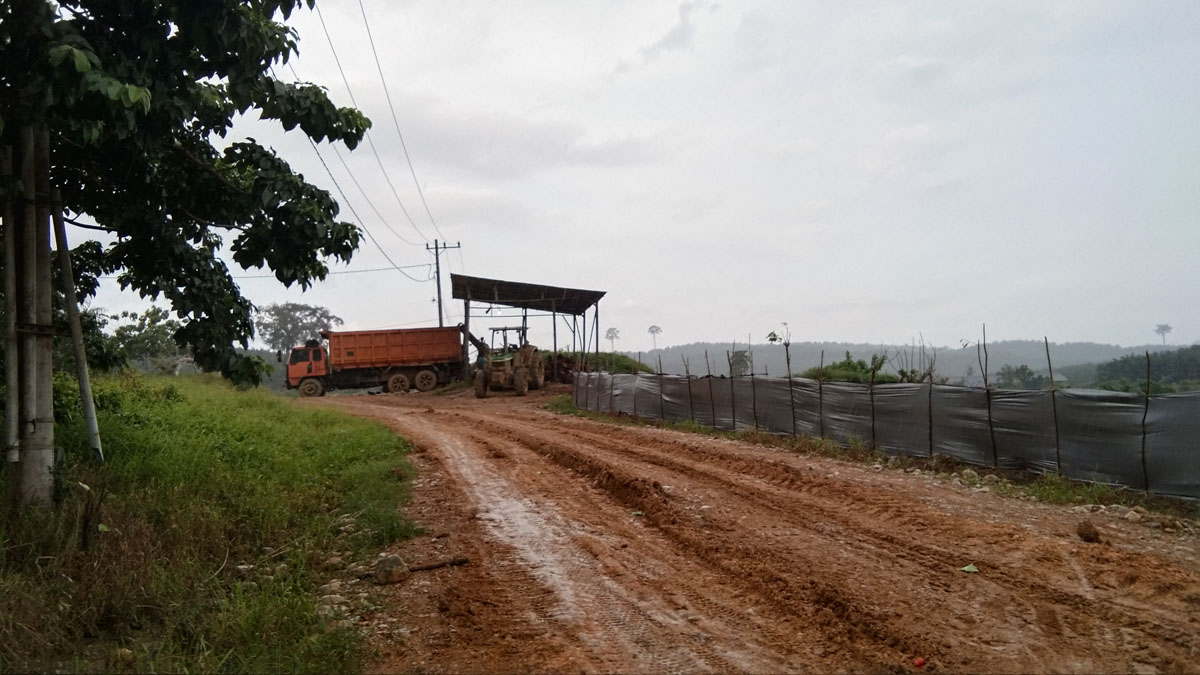
GPS Coordinates N 04º34’10.05″ E 97º39’25.87″
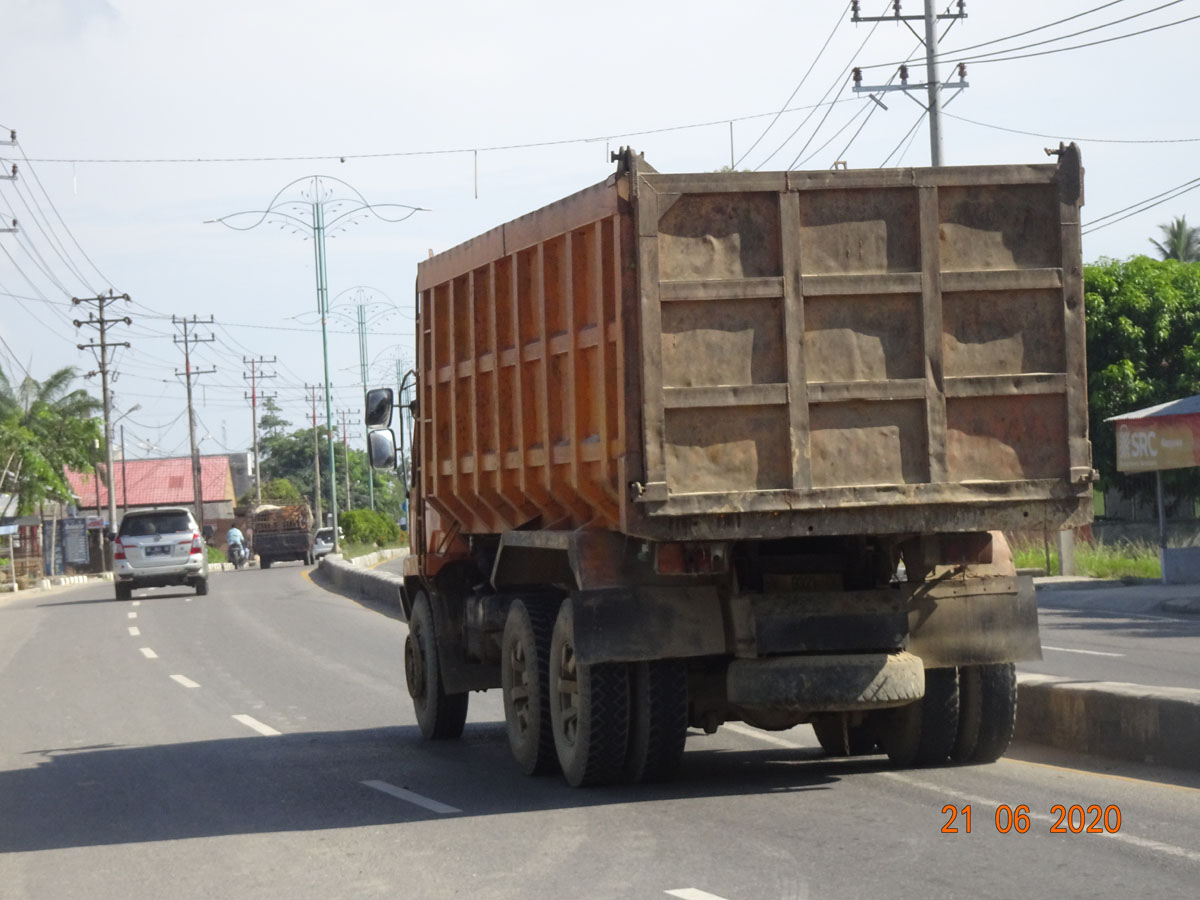
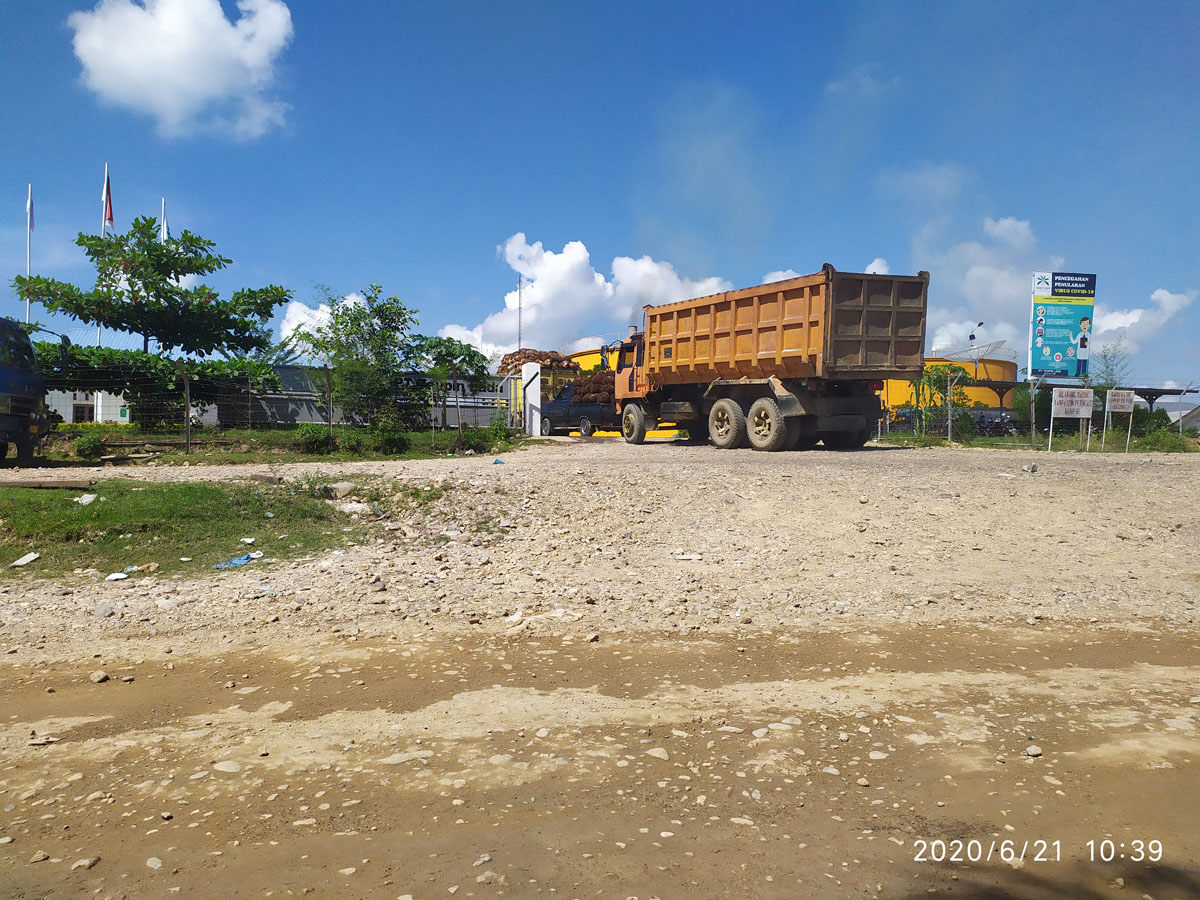
GPS Coordinates N 5º9’15.” E 97º34’13.48″
Investigators obtained receipts showing that PT. Teupin Lada is a supplier to one of the largest palm oil processors in Indonesia: PT. Permata Hijau. PT. Permata Hijau’s published mill list confirms its sourcing relationship in 2019. This is the latest in a series of cases showing that Permata Hijau is a major buyer of Conflict Palm Oil from palm oil companies that are the worst offenders of brands’ No Deforestation, No Peatland and No Exploitation (NDPE) policies in the Leuser Ecosystem. RAN has continued to call on all brands to suspend sourcing from Permata Hijau until it can prove that it has severed ties with PT. Indo Alam, withall producers clearing forests, and with all mills sourcing Conflict Palm Oil, including PT. Teupin Lada.
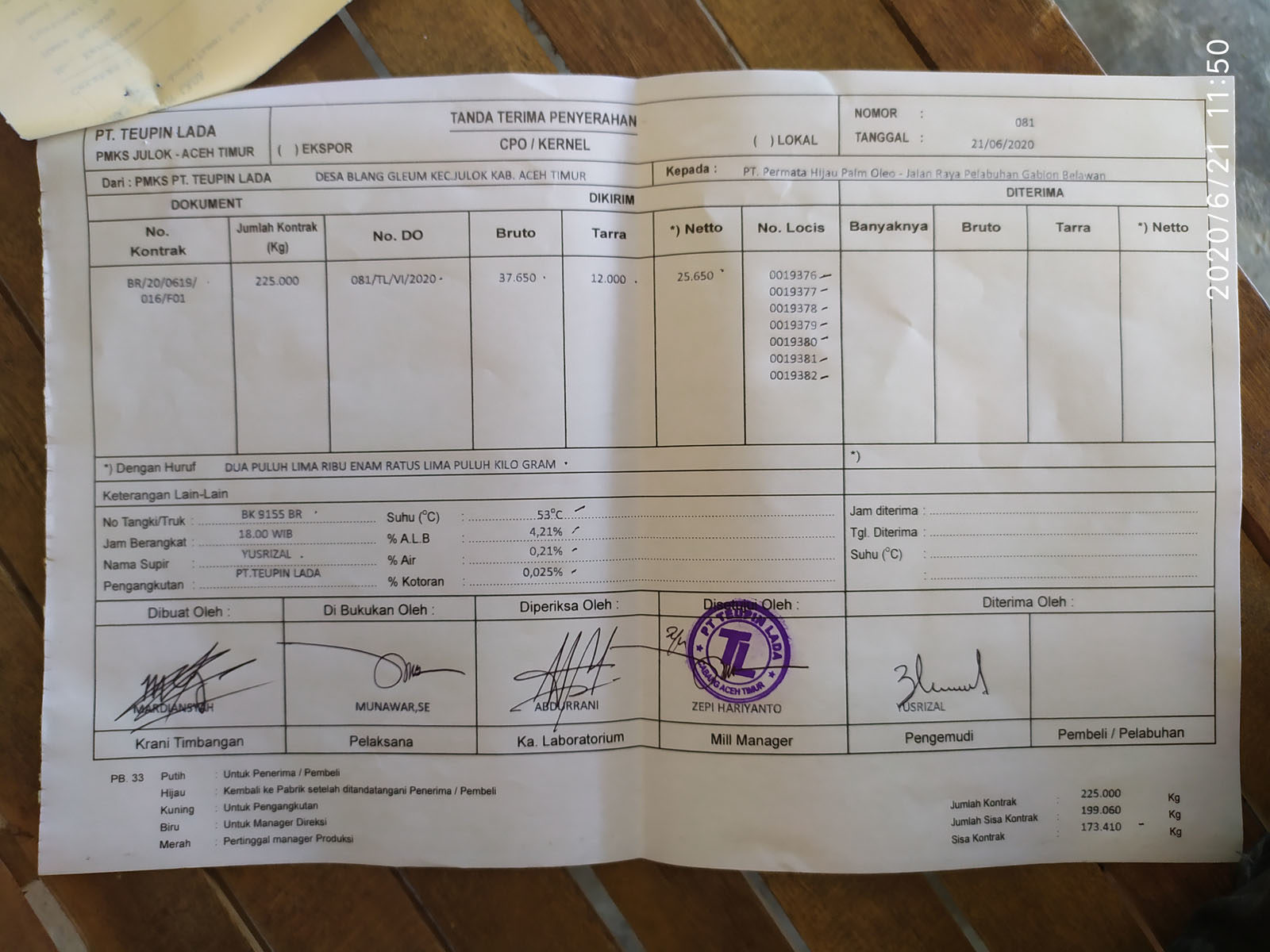
Published supplier lists also show Golden Agri Resources (GAR) and Wilmar are sourcing from PT. Teupin Lada. This is despite over five years of ‘efforts’ to implement their NDPE policies in the Leuser Ecosystem even though both claim the Leuser is a priority landscape for addressing deforestation in their global supply chains. GAR and Wilmar’s efforts are clearly failing to keep forests standing in the most critical lowland rainforests in Aceh Timur and to ensure that supplying mills have adequate traceability and compliance systems to avoid sourcing from producers destroying the Leuser Ecosystem.
A network of other secondary palm oil traders are also implicated in providing brands with Conflict Palm Oil from PT. Teupin Lada’s mill. Published mill lists also show that AAK, ADM, Bunge, Cargill, and Fuji Oil are sourcing from PT. Teupin Lada and are exposing brands manufacturing snack foods and personal care products in Europe, the US and Japan to deforestation in the Leuser Ecosystem.
The connections of other major brands to deforestation in the Leuser Ecosystem via this rogue actor remain, even though some, such as Unilever, claim to be monitoring deforestation in the Leuser Ecosystem and have placed PT. Indo Alam on a ‘No Buy’ list. Whilst Unilever’s mill list does not show it is sourcing from the palm oil mill caught accepting oil palm from PT. Indo Alam, it continues to do business with palm oil giants, like Wilmar, that process Conflict Palm Oil from PT. Teupin Lada in their refineries.
Chocolate giants Mars, Mondelēz and Ferrero have also been negligent as they continue to do business with Wilmar, GAR and others that process Conflict Palm Oil from PT. Teupin Lada in their refineries. Mars claims that its latest mill lists show that the palm oil producer PT. Indo Alam is not linked to its palm oil supply chain, but one mill list shows that it continues to do business with Permata Hijau — the palm oil processor caught sourcing from PT. Indo Alam in June 2020. Mars has also refused to publicly respond to the recent case showing its ongoing connections to bad actors violating the rights of communities and Indonesian laws prohibiting the intentional burning of forests to make way for new palm oil plantations. Despite repeated violations of its policies by suppliers located in Aceh’s peatlands, and calls for intervention from consumers across the globe, Mars has failed to announce any interventions, beyond general statements on a collaboration with Conservation International in the Coalition for Sustainable Livelihoods — a program that has no initiatives underway to protect lowland forests and peatlands from palm oil development in Aceh.
The end of 2020 is near and these brands individually and collectively have failed to end forest fires and deforestation for palm oil in their supply chains. Further delays and inadequate policy implementation is unacceptable. As a matter of urgency, Nestlé, Colgate-Palmolive, PepsiCo, Procter & Gamble, Unilever, Mars and Mondelēz must:
- Stop sourcing from PT. Indo Alam and all palm oil refineries and mills that source untraceable Conflict Palm Oil produced at the expense of the Leuser Ecosystem;
- Scale up efforts to keep forests standing in the lowland rainforests of Aceh Timur; and
- Work collectively to monitor and intervene to prevent further forest fires and deforestation of this priceless forest refuge for countless species, including Sumatran orangutans, elephants, tigers and rhinos.
Citations:
Published palm oil mill list of Nestlé
Published palm oil mill lists of Colgate-Palmolive
Published palm oil mill lists of PepsiCo
Published palm oil mill list of Procter & Gamble
Unilever Palm Oil Grievance Tracker












